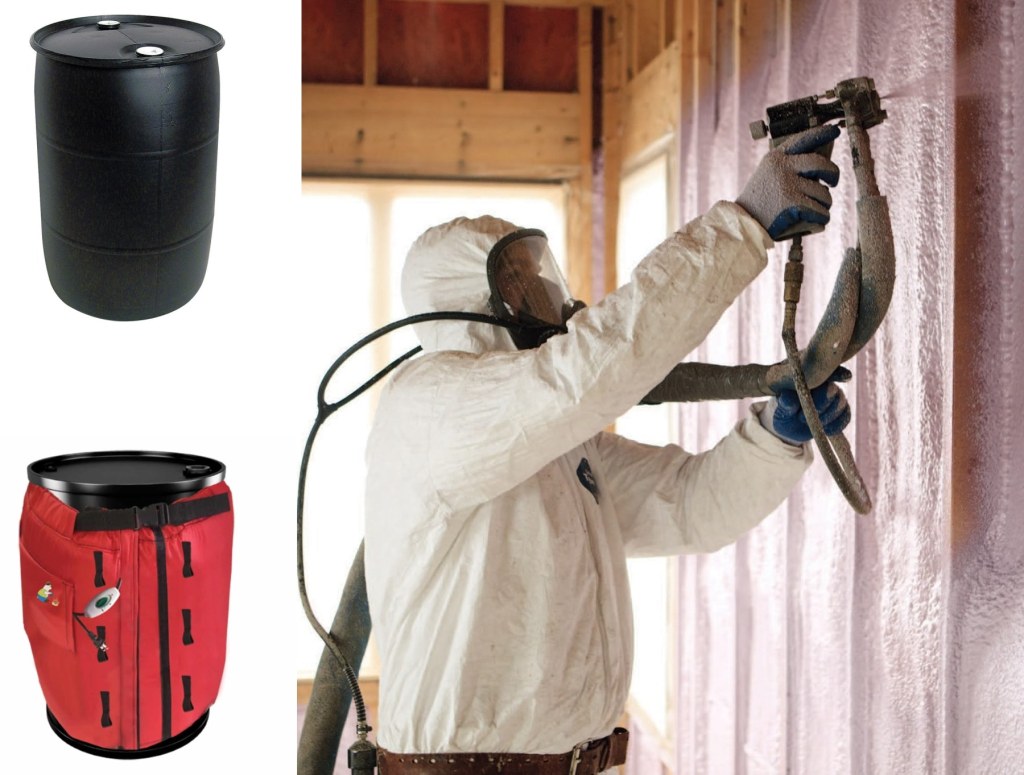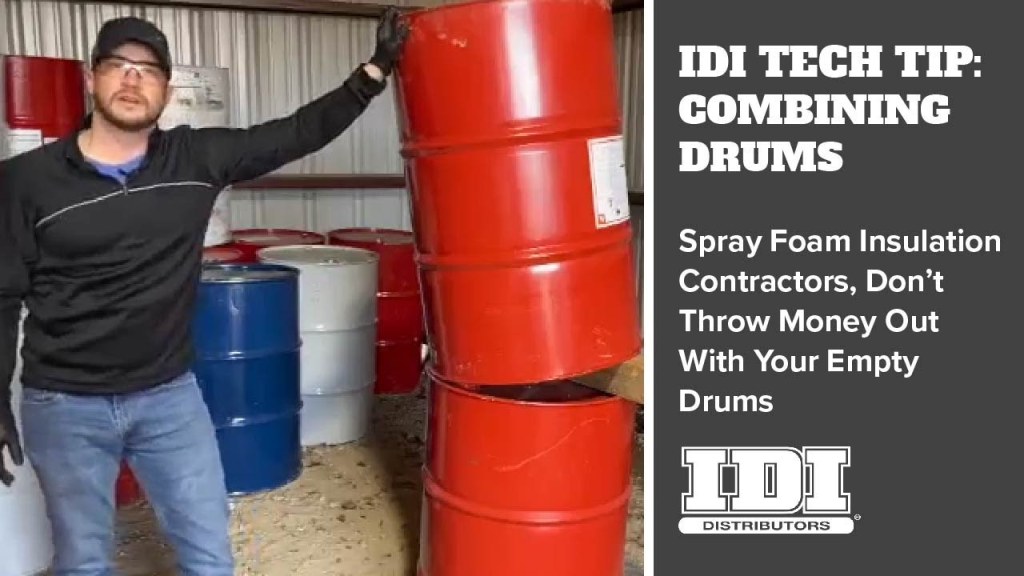55 Gallon Drum Spray Foam: The Ultimate Solution for Efficient Insulation
Introduction
Welcome, Music Enthusiast! Are you tired of dealing with inefficient insulation materials that fail to meet your needs? Look no further than the revolutionary 55 gallon drum spray foam, a game-changer in the insulation industry. In this article, we will explore the benefits, applications, and considerations of using 55 gallon drum spray foam for all your insulation requirements. Say goodbye to inadequate insulation and hello to energy efficiency!
What is 55 Gallon Drum Spray Foam?
🔍 55 gallon drum spray foam is a high-performance insulation material that comes in the form of a liquid stored in a large drum. It is a two-component system, consisting of an A-component (polyol) and a B-component (isocyanate), which are mixed together using specialized equipment. The resulting foam expands rapidly upon application, filling gaps and voids to provide an airtight seal.
Who Can Benefit from 55 Gallon Drum Spray Foam?

Image Source: arcticwarmers.com
🔍 55 gallon drum spray foam is a versatile solution suitable for various applications. It is commonly used by homeowners, construction professionals, and insulation contractors. Whether you are insulating a new building, retrofitting an existing structure, or seeking to enhance energy efficiency, 55 gallon drum spray foam offers unparalleled advantages.
When Should 55 Gallon Drum Spray Foam Be Used?
🔍 55 gallon drum spray foam is ideal for both residential and commercial applications. It can be used during new construction or renovations and is particularly effective in insulating walls, floors, roofs, attics, and crawl spaces. Whenever there is a need for a superior insulation material that provides a seamless and airtight barrier, 55 gallon drum spray foam should be considered.
Where Can 55 Gallon Drum Spray Foam Be Applied?

Image Source: ytimg.com
🔍 55 gallon drum spray foam can be applied to various substrates, including wood, concrete, metal, and masonry. It is commonly used in residential homes, commercial buildings, agricultural structures, and industrial facilities. From single-family houses to large-scale construction projects, this versatile insulation material can be applied virtually anywhere.
Why Choose 55 Gallon Drum Spray Foam?
🔍 55 gallon drum spray foam offers numerous advantages over traditional insulation materials. Firstly, it provides superior thermal insulation, reducing energy consumption and lowering utility bills. Additionally, it acts as an effective barrier against air and moisture infiltration, preventing mold growth and enhancing indoor air quality. Its seamless application ensures a tight seal, eliminating drafts and improving overall comfort. Lastly, 55 gallon drum spray foam is durable, long-lasting, and environmentally friendly.
How to Apply 55 Gallon Drum Spray Foam?
🔍 Applying 55 gallon drum spray foam requires specialized equipment and training. The A and B components are mixed using a proportioner, which sprays the foam onto the desired surface. The foam expands within seconds, providing immediate insulation and sealing properties. It is crucial to follow the manufacturer’s instructions and safety guidelines when handling and applying 55 gallon drum spray foam.
Advantages and Disadvantages of 55 Gallon Drum Spray Foam
👍 Advantages:
1. Superior thermal insulation properties
2. Airtight and seamless application
3. Effective moisture and air barrier
4. Reduction in energy consumption and costs
5. Enhanced indoor air quality
6. Long-lasting performance
7. Environmentally friendly option
👎 Disadvantages:
1. Professional installation required
2. Higher upfront cost compared to traditional insulation materials
3. Potentially hazardous chemicals involved in the application process
4. Limited availability in some areas
5. Proper ventilation and safety precautions must be followed during application
Frequently Asked Questions (FAQs)
Q: Can 55 gallon drum spray foam be used for soundproofing purposes?
A: Yes! 55 gallon drum spray foam provides excellent sound insulation properties, reducing noise transmission between rooms or from outside sources.
Q: Is 55 gallon drum spray foam suitable for use in extreme temperatures?
A: Absolutely! 55 gallon drum spray foam is designed to withstand a wide range of temperatures, ensuring optimal performance in both hot and cold climates.
Q: How long does it take for 55 gallon drum spray foam to cure?
A: The curing time of 55 gallon drum spray foam varies depending on environmental conditions. However, it typically cures within 24 hours.
Q: Is 55 gallon drum spray foam safe for the environment?
A: Yes, 55 gallon drum spray foam is considered environmentally friendly. It is free of ozone-depleting substances and does not emit harmful gases once properly cured.
Q: Can 55 gallon drum spray foam be applied on existing insulation?
A: Yes, 55 gallon drum spray foam can be applied over existing insulation to enhance its performance and fill any gaps or voids left by the previous insulation material.
Conclusion
In conclusion, 55 gallon drum spray foam is a revolutionary insulation material that offers unmatched advantages for both residential and commercial applications. With its superior thermal insulation properties, airtight seal, and moisture resistance, it provides the perfect solution for energy-efficient buildings. While professional installation and higher upfront costs are considerations, the long-term benefits and durability make 55 gallon drum spray foam a worthwhile investment. Upgrade your insulation today and experience the comfort and savings it brings!
Disclaimer: The information provided in this article is for informational purposes only and should not be considered as professional advice. Always consult a qualified insulation contractor or manufacturer for guidance on specific projects.